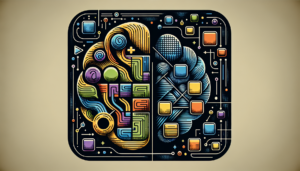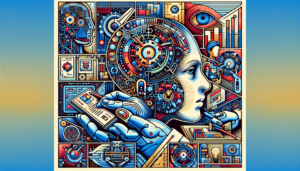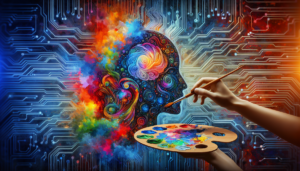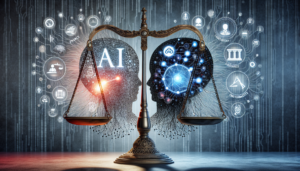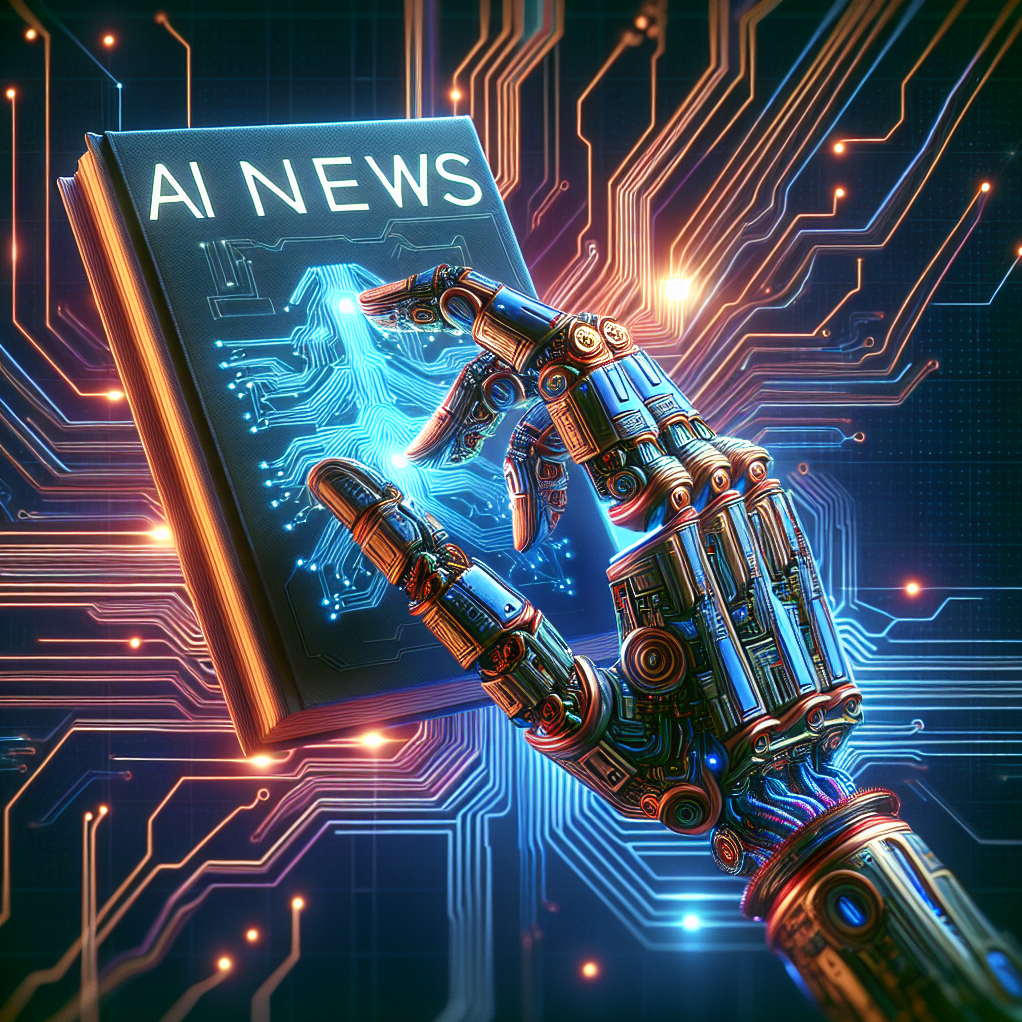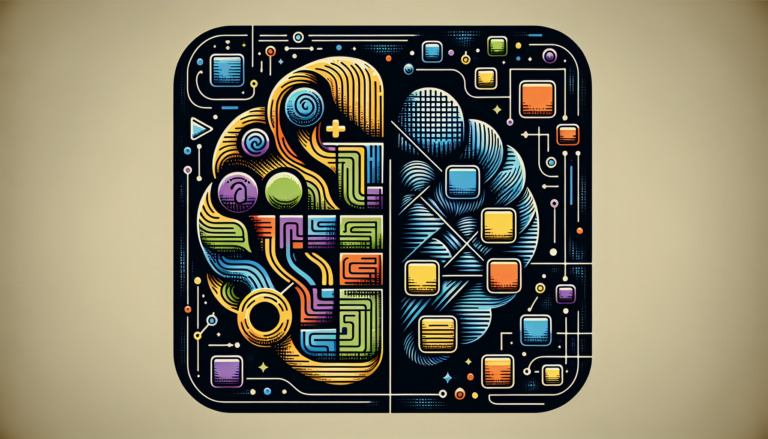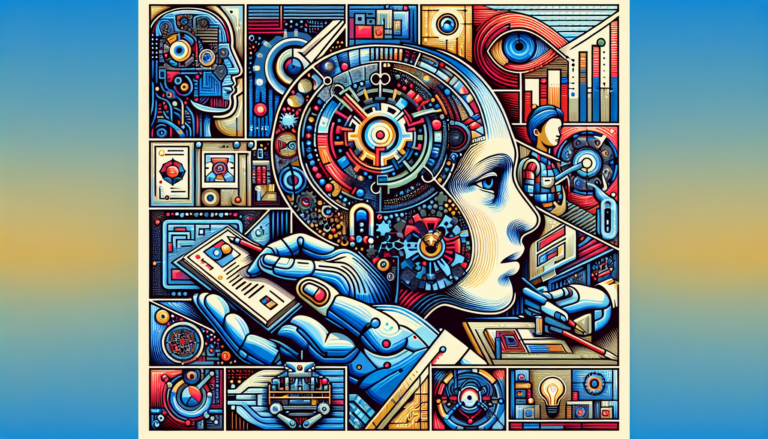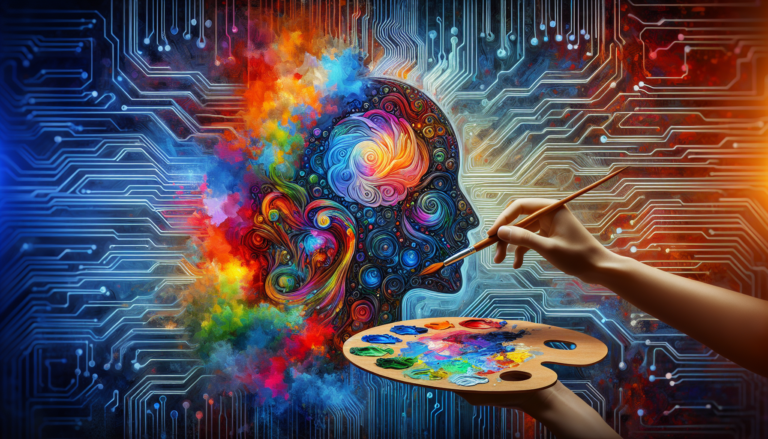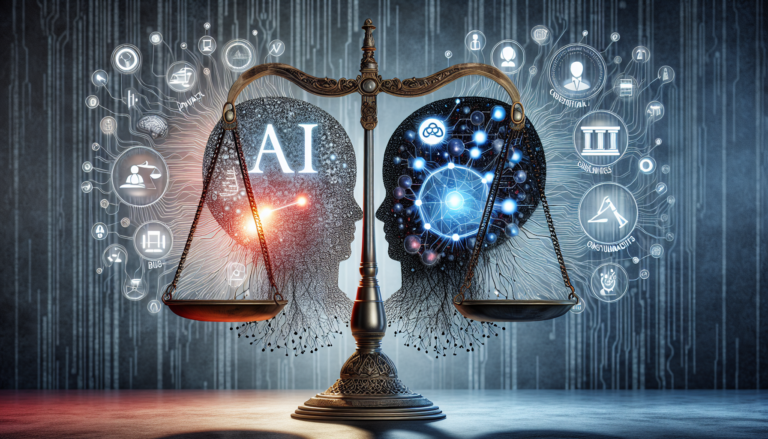Imagine a world where the power of artificial intelligence (AI) is harnessed to revolutionize mental health diagnosis and treatment. With advancements in technology, AI has the potential to transform the way mental health professionals operate, offering faster, more accurate diagnoses, personalized treatment plans, and even continuous monitoring of individuals’ well-being. In this article, we explore the possibilities and potential benefits of integrating AI into the field of mental health, shedding light on how this emerging technology could truly make a difference in improving the lives of those struggling with mental health issues.
The Role of AI in Mental Health Diagnosis
Understanding the potential of AI in mental health diagnosis
Artificial Intelligence (AI) has the potential to revolutionize the field of mental health diagnosis. By leveraging machine learning algorithms, natural language processing, and image recognition technology, AI tools can assist healthcare professionals in accurately and efficiently diagnosing mental health conditions. This article explores the advantages of using AI in mental health diagnosis, as well as the limitations and challenges associated with this approach.
Advantages of using AI in diagnosing mental health conditions
One of the primary advantages of using AI in mental health diagnosis is the improved accuracy and reliability it offers. AI tools can analyze vast amounts of patient data, including medical records, diagnostic tests, and even social media activity, to identify patterns and indicators of mental health conditions. By considering a comprehensive range of factors, AI algorithms can provide more precise and evidence-based diagnoses, ultimately leading to better treatment outcomes.
Another benefit of AI in mental health diagnosis is enhanced efficiency and speed. Healthcare professionals often face overwhelming workloads, making it challenging to give each patient the time and attention they deserve. AI tools can streamline the diagnostic process by automating routine tasks, such as data analysis and pattern recognition. This frees up clinicians’ time, allowing them to focus on personalized patient care and treatment planning.
Furthermore, AI can help address the issue of accessibility in mental health services. Many individuals, particularly those in remote or underserved areas, face barriers to receiving timely mental health support. AI tools can bridge this gap by providing virtual consultations and assessments, enabling people to access mental health services from the comfort of their own homes. This increased accessibility has the potential to reach a larger population and improve overall mental health outcomes.
Limitations and challenges in using AI for mental health diagnosis
Although AI holds promise in mental health diagnosis, there are important limitations and challenges to consider. One primary concern is the privacy and data security of patient information. AI algorithms rely on vast amounts of personal data to make accurate diagnoses, which raises ethical questions regarding how this data should be collected, stored, and protected. Safeguarding patient privacy and ensuring data security must be prioritized to maintain trust and confidence in AI-assisted diagnosis.
Another challenge is the potential for biased or unfair diagnosis. AI algorithms learn from existing data, including historical patient records, which may contain biases and inequalities. If not properly addressed, these biases can result in inaccurate diagnoses or the perpetuation of existing disparities in mental health treatment. Ongoing efforts are necessary to ensure AI systems are trained on diverse and representative datasets to minimize biases and deliver equitable care for all individuals.
Additionally, it is important to strike a balance between human judgment and AI algorithms. While AI tools can assist in the diagnostic process, they should not replace the expertise and intuition of healthcare professionals. The human aspect of mental health diagnosis, such as empathetic listening and understanding the nuances of each individual’s experience, cannot be replicated by AI alone. AI should be seen as a valuable tool to augment clinical decision-making rather than replace the role of healthcare providers.
AI Tools for Mental Health Diagnosis
Machine learning algorithms in mental health diagnosis
Machine learning algorithms play a crucial role in AI-assisted mental health diagnosis. These algorithms can analyze large datasets, identify patterns, and make predictions based on the data provided. In the context of mental health, machine learning algorithms can be trained to recognize patterns in symptoms, behaviors, and risk factors associated with various mental health conditions. This allows for more accurate and personalized diagnoses, improving the overall treatment process.
Natural language processing in mental health diagnosis
natural language processing (NLP) is another powerful AI tool in mental health diagnosis. NLP enables computers to understand and analyze human language, including text and spoken words. In mental health diagnosis, NLP can be used to analyze patient interviews, therapy transcripts, and even social media posts to extract relevant information about an individual’s mental health state. By analyzing linguistic cues and sentiment, NLP algorithms can assist in identifying potential mental health conditions and provide valuable insights to healthcare professionals.
Image recognition technology in mental health diagnosis
Image recognition technology has gained significant traction in various fields, including mental health diagnosis. By analyzing brain scans, facial expressions, and other visual cues, AI algorithms can detect potential markers of mental health conditions. For example, image recognition algorithms can identify specific patterns in brain imaging data that indicate conditions like depression, schizophrenia, or Alzheimer’s disease. This technology can complement traditional diagnostic tools and provide additional objective measures for mental health assessment.

Benefits of AI in Mental Health Diagnosis
Improved accuracy and reliability in diagnosis
One of the key benefits of AI in mental health diagnosis is its ability to improve the accuracy and reliability of diagnoses. By analyzing extensive datasets and considering multiple factors, AI algorithms can provide more precise and evidence-based assessments. This accuracy can lead to better treatment planning and outcomes for individuals with mental health conditions.
Enhanced efficiency and speed in diagnosis
AI tools can significantly enhance the efficiency and speed of mental health diagnosis. By automating routine tasks, such as data analysis and pattern recognition, AI algorithms can streamline the diagnostic process. This allows healthcare professionals to focus their time and energy on personalized patient care and treatment planning, ultimately improving the overall quality of mental health services.
Increased accessibility to mental health services
AI has the potential to address the issue of accessibility in mental health services. Many individuals face barriers, such as geographic distance or limited healthcare resources, that prevent them from accessing timely mental health support. AI tools, such as virtual consultations and assessments, can bridge this gap by enabling people to receive care remotely. This increased accessibility has the potential to reach underserved populations and improve mental health outcomes on a larger scale.
Ethical Considerations in AI-Assisted Diagnosis
Privacy and data security concerns
Using AI in mental health diagnosis raises important privacy and data security concerns. AI algorithms rely on vast amounts of personal data, including medical records and online activity, to make accurate assessments. Proper safeguards must be in place to ensure the privacy of patient information and protect against unauthorized access or data breaches. Transparency and informed consent are essential to maintain trust and confidentiality in AI-assisted diagnosis.
Ensuring unbiased and fair diagnosis
addressing biases and ensuring fairness in AI-assisted diagnosis is crucial. AI algorithms learn from existing data, which may contain historical biases and inequalities. If not properly addressed, these biases can perpetuate disparities in mental health treatment or result in inaccurate diagnoses. Efforts must be made to train AI systems on diverse and representative datasets, minimizing biases and delivering equitable care for all individuals, regardless of their background or characteristics.
Balancing human judgment with AI algorithms
While AI can assist in the diagnostic process, it is important to strike a balance between human judgment and AI algorithms. The complexities of mental health require empathetic listening, understanding of context, and nuanced interpretations that are unique to each individual. AI, as a tool, should augment the expertise and intuition of healthcare professionals, rather than replace them. Collaborative decision-making between humans and AI algorithms is crucial to ensure the best possible patient care.

The Potential of AI in Mental Health Treatment
Exploring AI-driven therapy solutions
AI has the potential to revolutionize mental health treatment through the development of AI-driven therapy solutions. These solutions can provide individuals with personalized therapeutic interventions based on their specific needs and circumstances. By analyzing vast amounts of data, including psychological assessments and treatment outcomes, AI algorithms can tailor treatment plans to optimize outcomes and help individuals manage their mental health more effectively.
Virtual reality and augmented reality applications in mental health treatment
Virtual reality (VR) and augmented reality (AR) applications show promise in mental health treatment. VR technology can create immersive environments that simulate real-life situations, allowing individuals to confront their fears or anxieties in a controlled and safe manner. AR, on the other hand, overlays virtual elements onto the real world, providing individuals with additional guidance and support during therapy sessions. These technologies can enhance traditional therapy approaches, improve engagement, and facilitate better treatment outcomes.
Chatbots and virtual assistants for therapy support
Chatbots and virtual assistants offer innovative ways of providing therapy support and guidance. These AI-powered conversational agents can engage individuals in therapeutic conversations, provide psychoeducation, and offer coping strategies or relaxation techniques. Chatbots and virtual assistants can be available 24/7, providing continuous support and reducing the barriers associated with accessing mental health services. While they cannot replace human therapists, these tools can supplement therapy and increase individuals’ access to mental health resources.
Challenges and Limitations of AI in Mental Health Treatment
Lack of human connection and empathy
One of the primary limitations of AI in mental health treatment is the lack of human connection and empathy. While AI tools can provide guidance and support, they cannot replicate the emotional connection and understanding that occurs in human-to-human interactions. The therapeutic relationship built between a patient and a therapist plays a significant role in the success of mental health treatment. AI-based solutions should be designed to augment human interaction rather than replace it entirely.
Reliability and trustworthiness of AI-driven therapy
The reliability and trustworthiness of AI-driven therapy solutions are critical considerations. AI algorithms are only as good as the data they are trained on, and errors or biases in the training data can affect the accuracy and effectiveness of therapy interventions. It is crucial to continuously validate and update AI models to ensure their reliability and trustworthiness. Additionally, transparency in disclosing the limitations and potential risks of AI-driven therapy is essential for informed decision-making and maintaining patient trust.
Ethical concerns and boundary management
Ethical concerns and boundary management are important considerations when using AI in mental health treatment. For instance, the use of AI tools in therapy raises questions about the appropriateness of certain interventions and the potential for overreliance on technology. Clear guidelines and regulations must be established to define the appropriate role of AI in therapy, ensuring its responsible and ethical use. Establishing boundaries and maintaining ethical standards are essential for upholding patient well-being and safety.
Improving Access to Mental Health Services with AI
Addressing the mental health treatment gap
AI has the potential to address the mental health treatment gap by increasing access to services. Many individuals, particularly in underserved or rural areas, face challenges in accessing timely mental health care. AI tools, such as teletherapy platforms or virtual consultations, can provide remote services, eliminating geographic barriers and reaching individuals who may not have access to traditional in-person services. By improving access, AI can help close the mental health treatment gap and reach underserved populations.
Reducing stigma and promoting early intervention
Another way AI can improve mental health services is by reducing stigma and promoting early intervention. Many individuals hesitate to seek help for mental health concerns due to societal stigma or fear of judgment. AI tools can provide anonymous, confidential support and deliver mental health information without the fear of social repercussions. By offering early intervention opportunities and providing information in a non-judgmental way, AI can encourage individuals to seek help sooner and prevent the worsening of mental health issues.
Providing personalized and scalable support
AI can provide personalized and scalable mental health support, catering to individual needs while reaching a larger population. Through data analysis and AI algorithms, mental health tools can tailor interventions to each person’s unique characteristics, symptoms, and preferences. This personalized approach allows individuals to receive customized support that aligns with their specific needs. Additionally, AI can scale mental health services by offering virtual interventions that can reach many individuals simultaneously, without compromising individualized care.
AI Tools for Monitoring and Prevention
Predictive analytics for mental health relapse prevention
AI tools can leverage predictive analytics to identify individuals at risk of mental health relapse. By analyzing various data sources, including historical treatment data, medication adherence, and lifestyle factors, AI algorithms can identify patterns that precede relapse episodes. This early identification allows healthcare providers to intervene proactively, providing timely support and preventing the worsening of mental health conditions. Predictive analytics can empower individuals in their self-management efforts, enabling them to take preventive measures and make informed decisions regarding their mental health.
Real-time monitoring of mental health indicators
AI tools can enable real-time monitoring of mental health indicators, offering valuable insights into an individual’s well-being. Through wearable devices, smartphone apps, or even social media monitoring, AI algorithms can analyze data streams and identify changes in mood, sleeping patterns, or social interactions that may indicate deteriorating mental health. Real-time monitoring allows for more timely interventions, as healthcare providers can respond to indicators of distress and offer support before a crisis occurs.
Early detection of suicidal ideation
AI has the potential to facilitate the early detection of suicidal ideation, saving lives in the process. By analyzing social media posts or online interactions, AI algorithms can identify linguistic patterns that indicate potential suicide risk. This information can then be used to prompt interventions, such as providing crisis hotline numbers or alerting mental health professionals. Early detection of suicidal ideation can help prevent tragic outcomes and provide individuals with the support they need during times of crisis.
The Role of AI in Suicide Prevention
Using AI algorithms to identify high-risk individuals
AI algorithms can play a crucial role in identifying individuals at high risk for suicide. Through the analysis of various data sources, including social media activity, online searches, or even electronic health records, AI algorithms can identify patterns and indicators of suicidal behavior. By flagging high-risk individuals, healthcare providers can intervene proactively, offering appropriate support and resources to individuals in need. AI can act as an additional layer of protection in suicide prevention efforts.
Predictive models for suicide risk assessment
AI tools can develop predictive models for assessing suicide risk. By analyzing a multitude of factors – such as demographic information, mental health history, and clinical assessments – AI algorithms can generate risk scores that indicate the likelihood of suicidal behavior. These models can assist healthcare professionals in making informed decisions regarding treatment planning and intervention strategies. Predictive models offer the potential to identify at-risk individuals earlier and provide them with appropriate care before a crisis emerges.
Supporting crisis helplines and intervention
AI can support crisis helplines and intervention efforts by providing real-time assistance and resources. Chatbots or virtual assistants equipped with AI algorithms can engage with individuals in distress, offering empathetic conversations, crisis management strategies, and even connecting them to appropriate helplines or emergency services. These AI-driven interventions can provide immediate support to individuals in crisis and ensure that they receive timely assistance, potentially saving lives in critical situations.
Future Perspectives and Challenges
Advancing AI methodologies for mental health
As technology continues to evolve, there is a need to advance AI methodologies specific to mental health. Ongoing research and development are essential to refine existing algorithms, improve accuracy, and address limitations. Additionally, interdisciplinary collaborations among computer scientists, psychologists, and healthcare professionals are crucial for developing comprehensive AI solutions that effectively assist in mental health diagnosis and treatment.
Addressing legal and regulatory considerations
The use of AI in mental health diagnosis and treatment raises legal and regulatory considerations that need to be addressed. Laws regarding privacy, data protection, and consent must align with the use of AI tools, ensuring that individuals’ rights and confidentiality are upheld. Regulatory frameworks should also establish standards of care for AI-assisted diagnosis and treatment, ensuring that these technologies are used safely and responsibly within the healthcare system.
Balancing human involvement with AI algorithms
Finding the right balance between human involvement and AI algorithms is a key challenge. While AI tools can enhance diagnostic accuracy and improve treatment outcomes, it is crucial to maintain the human aspect of mental health care. Healthcare professionals’ expertise, empathy, and ability to establish therapeutic relationships should not be overshadowed by AI. Therefore, efforts must be made to foster collaboration and establish guidelines for the appropriate integration of AI tools into mental health practice.
In conclusion, AI has the potential to revolutionize mental health diagnosis and treatment. By leveraging machine learning algorithms, natural language processing, and image recognition technology, AI tools can enhance accuracy, speed, and accessibility in diagnosis. However, several challenges must be addressed, including privacy concerns, biases in diagnosis, and the need to balance human judgment with AI algorithms. Furthermore, AI can play a crucial role in mental health treatment, offering AI-driven therapy solutions, virtual reality applications, and chatbots for support. While AI holds promise, it is essential to acknowledge its limitations, such as the lack of human connection and ethical considerations. AI can also improve access to mental health services through remote interventions and personalized support. Additionally, AI tools can aid in monitoring and prevention, with predictive analytics and real-time monitoring offering valuable insights and assisting in suicide prevention efforts. Moving forward, ongoing advancements in AI methodologies, legal considerations, and the ethical integration of AI with human involvement are critical for harnessing the full potential of AI in mental health.

